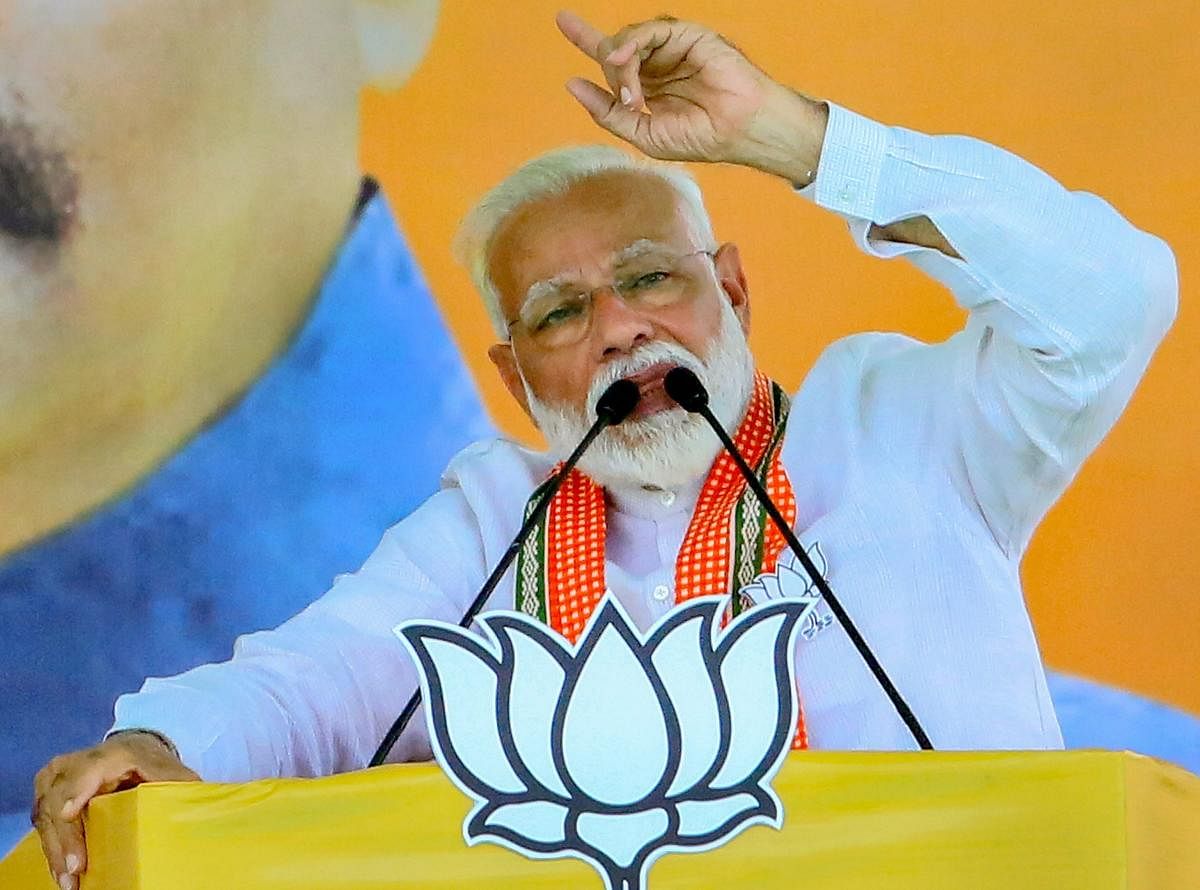
Prime Minister Narendra Modi’s statement in West Bengal that 40 Trinamool Congress MLAs were in touch with him and would desert the state’s ruling party after the announcement of the results of the Lok Sabha elections stands out loudly for its impropriety and irresponsibility. The prime minister was addressing an election rally in Serampur in the state where the BJP is challenging the dominant and well-entrenched Trinamool Congress. It was the prime minister’s intention to show that the Trinamool Congress was declining and disintegrating and the BJP would provide the alternative to it. Whether there was any Trinamool MLA in touch with the prime minister or not, this was an open call for revolt against the government of the state. It was highly irresponsible of the prime minister to make such a call.
The central government and the prime minister are part of a federal set-up where there is a diversity of parties contending, functioning or ruling at the state level. The Constitution and the country’s political traditions envisage and provide important roles for regional and even local parties in governance. Despite paying lip service to cooperative federalism, the prime minister and the BJP have been intolerant of regional parties, in fact of all opposition parties. But the Serampur statement goes beyond intolerance. The prime minister has violated the norms of propriety by suggesting in public the overthrow of a state government through political defections. There is a law to curb defections, and as the prime minister, he has the responsibility to respect and protect the law. With his statement, Modi was legitimising defections and horse-trading. The BJP government at the Centre has effected regime change in some states and tried to topple governments in others through wrong and dubious means. The prime minister’s pubic endorsement and encouragement of such tactics is wrong and improper, and challenges the idea and practice of fair politics.
The prime minister has not only violated political morality but the code of right electoral conduct also with his statement. When he made the statement in Serampur, polling was going on in other parts of the state, and he possibly also wanted to influence the voting in those areas. This is unusual and violates unwritten but accepted campaign norms. The prime minister has given the go-by to the norms and courtesies of political campaigning and has often been in breach of the model code of conduct. He has talked and conducted himself as the leader of a party that desperately wants to win at any cost, and not as the prime minister who should follow and set high standards in politics and public life.